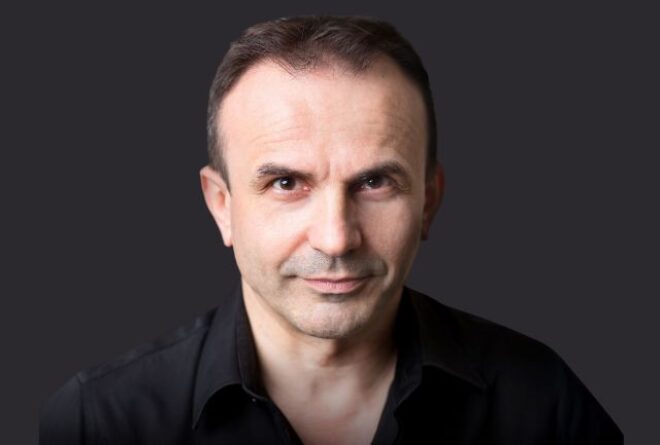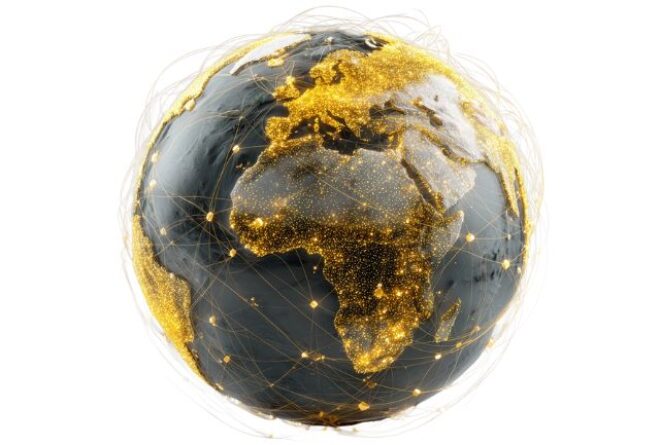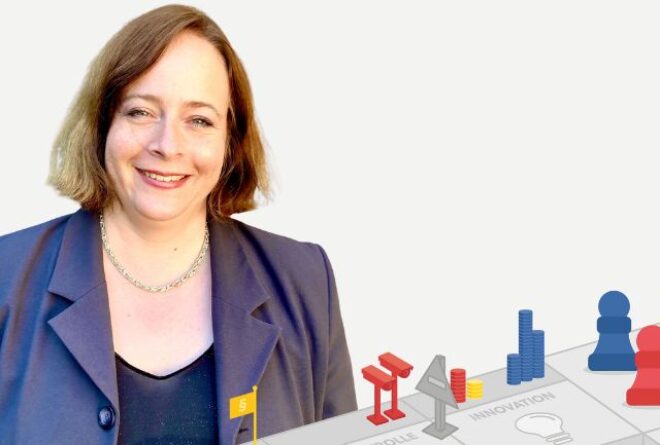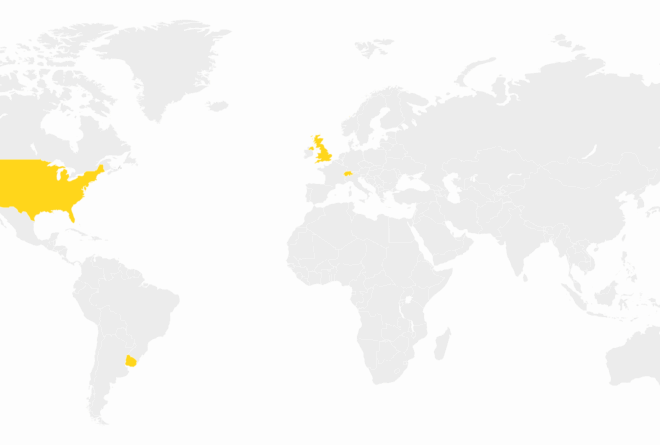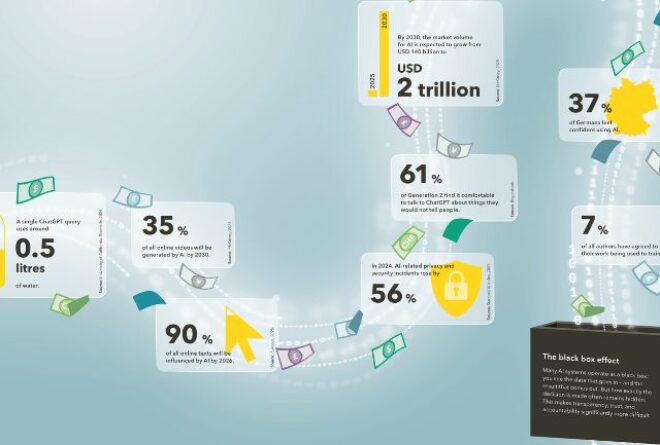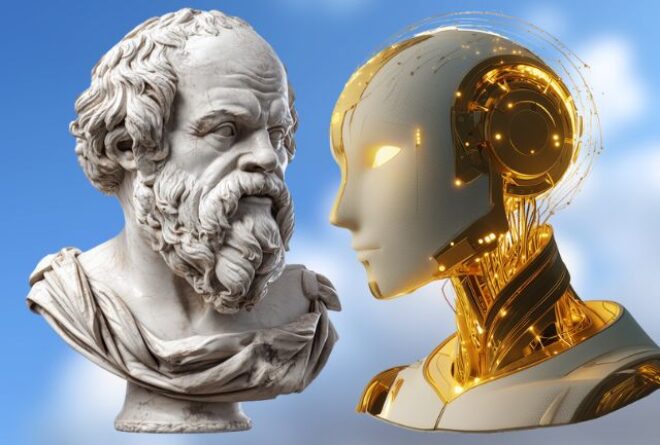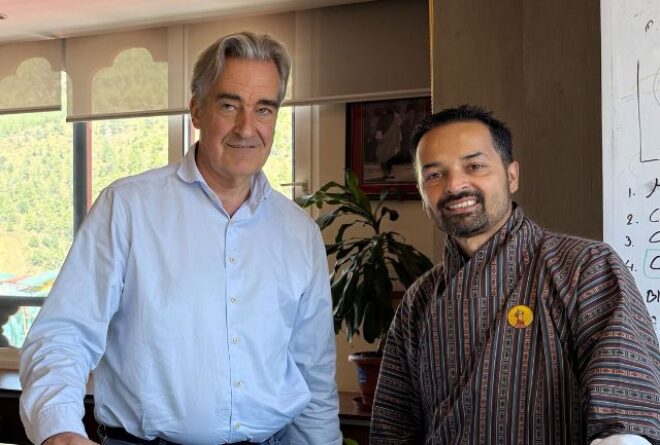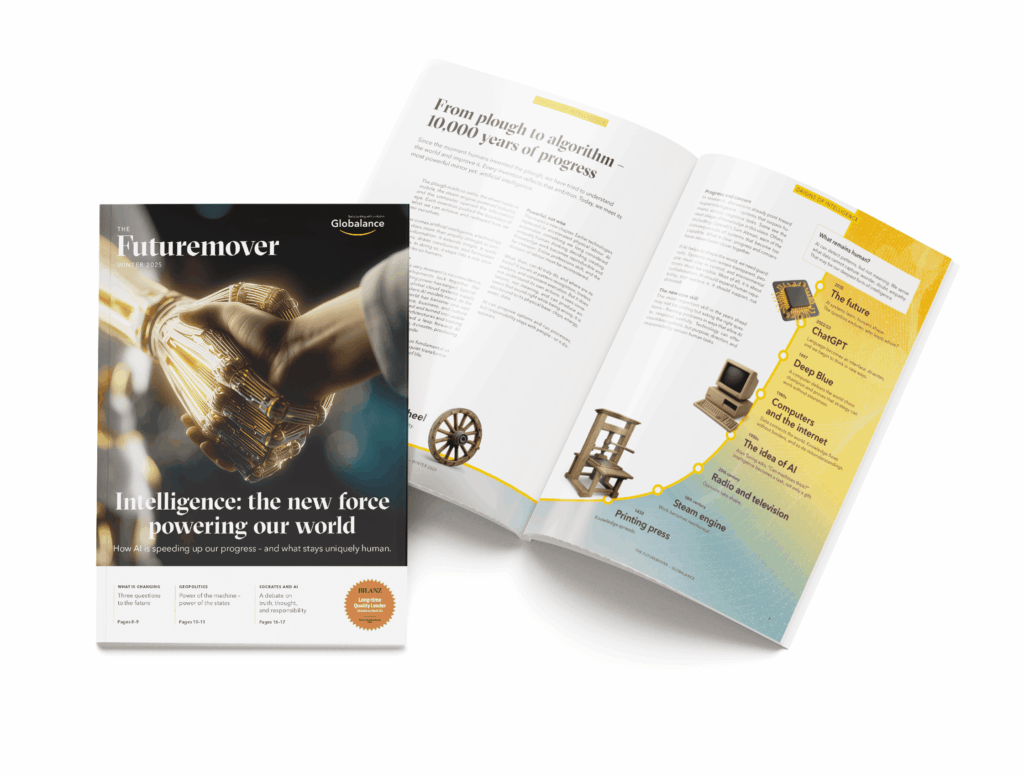News & Trends
Interview: the changing values of our time
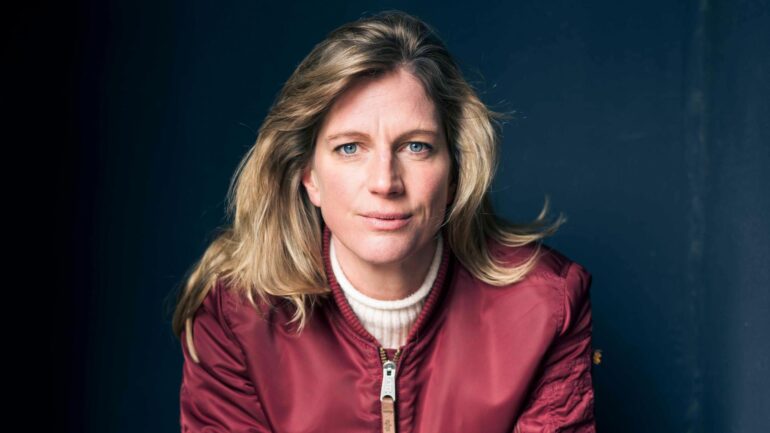
Political economist and transformation researcher Maja Göpel talks about truthfulness, social change – and why businesses are more successful when they also take future generations into account. In her book “Werte – Ein Kompass für die Zukunft” (“Values – a compass for the future”), she shows why truthfulness, responsibility and long-term thinking are key to a sustainable society.
Maja Göpel, why are values so important particularly in times of radical change?
Because they give us direction. Values are our internal compass and offer social security, especially when familiar structures start to shake at the foundations. Then we see which values really take the weight. A key element is whether we think only of short-term results, or see our contribution as part of a larger whole. People who look beyond their own advantage can help shape sustainable solutions.
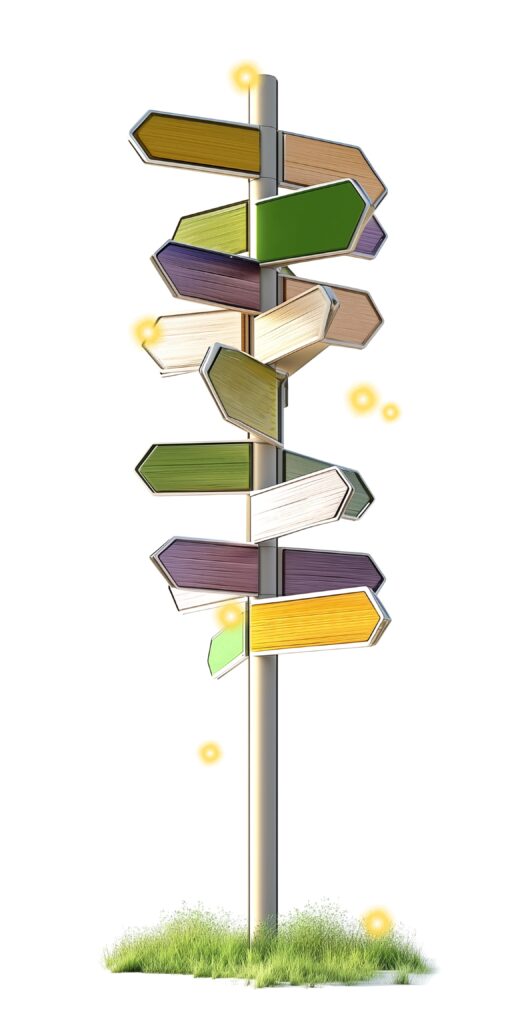
Have digitalization and globalization changed our understanding of values?
Our basic values change more slowly than we think – but their implications are constantly changing. Take, for example, freedom: in a society with many standards, it leads to more personal flexibility in decision-making. But when the decisions made by one person curtail the freedom of another, the question arises as to when compromises are required. Values-based action is always situation-dependent and must be negotiated.
How do values differ between the generations?
Core values often shift with different life stages. Young people often think in a freer and more idealistic way, whereas more responsibility in life makes security more important. At the same time, we are now living through profound changes, which are leading many people to return more towards seeking straightforward solutions and challenges.
What values are helping us to face the challenges of our time?
To me, three values seem particularly important: truthfulness – the courage to look at things honestly and not take refuge in euphemistic narratives; longtermism – decisions that are painful in the short term, but foster sustainable solutions; and commitment – the readiness to take responsibility for the big picture instead of getting lost in a focus on the self, which ultimately makes everyone less secure.
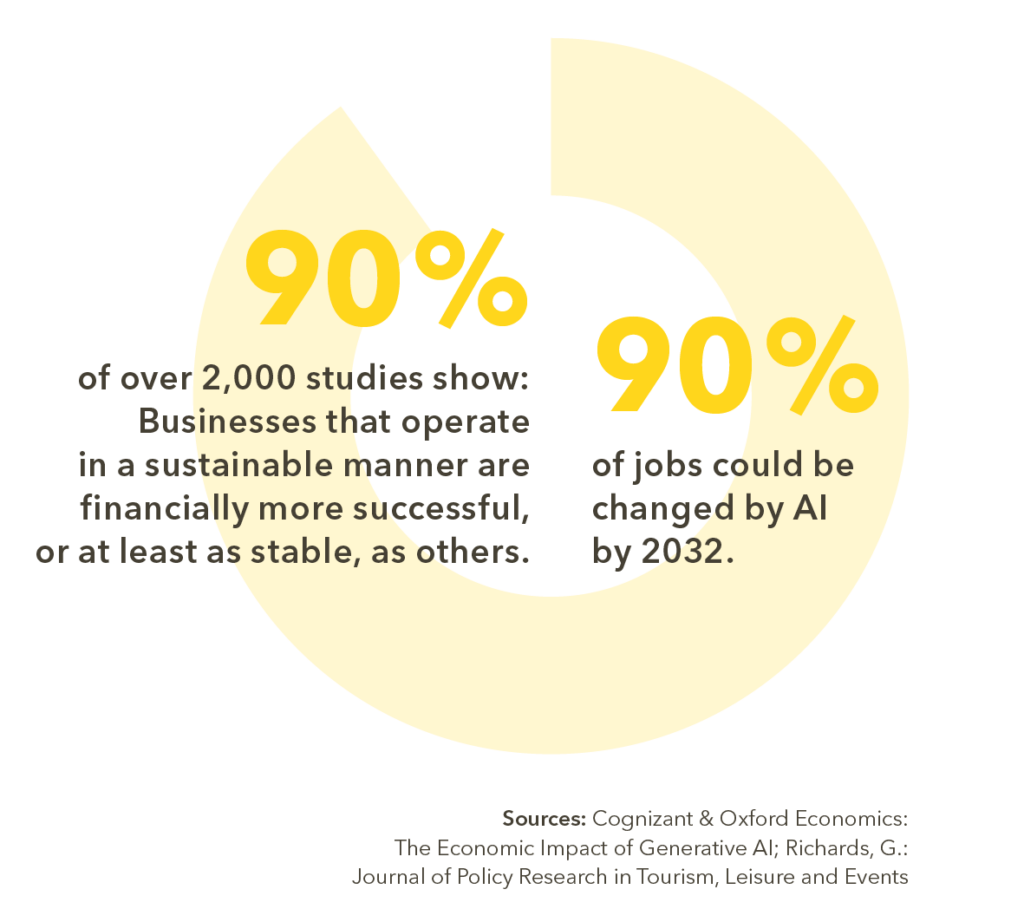
What does all this mean for businesses?
Businesses that think long-term are more resilient. It’s not enough anymore to just be more productive or more innovative. The key factor is the extent to which a business sees itself as part of a developing society. Companies that develop sustainable and meaningful business models will earn the trust of customers, investors and talented people – and thus secure their future viability.
But it’s not just businesses that are facing a transition – our understanding of work is changing too.
Which role is digitalization playing in this?
Technological progress always changes our relationship with work too. The question is: which activities do we entrust to machines – and for which will we remain irreplaceable? Human well-being always depends on good interpersonal relationships, and that won’t become any less true in a digitalized world. Empathy, creativity, and fundamental social interaction cannot be automated. Educational or caring professions are gaining in importance, but are sadly often not valued as they should be. When we talk about the work of the future, we also need to consider which activities we want to deliberately upvalue.
Businesses that
think long-term are
more resilient.
Is the economy at a turning point?
Absolutely. Where that turn is heading is being decided now. Some businesses have recognized that sustainable business models pave the way for long-term security, while others are still focusing on short-term gains – without also considering the societal consequences or their own risks. Problems arise when companies evade their responsibilities and act as if they have nothing to do with the repercussions of their decisions.
Do you have any examples of companies which are already making this change?
As CEO of outdoor outfitter Vaude, Antje von Dewitz has consistently – and successfully – geared her business towards sustainability; she is considered an example. Or take Edding: when a grandfather with his grandchild in his arms says more or less the following: “If at some point this company’s products no longer have a place in a significantly changed world, then that’s OK.” This attitude looks at more than just market shares; rather, it highlights the original idea of entrepreneurship: to offer solutions. I can do that in a very different way if I see myself as a creative and adaptable member of a society.
Which financial sector innovations do you see as particularly important?
Today, capital flows mainly into technologies or assets that promise short-term gains. But sustainable innovations require courageous and long-term investments which focus not only on dividends, but also on preserving and developing fundamentals. Education, preservation of natural resources and social innovations are under-financed, although this real capital forms the basis for future economic success. Finally, the question we have to ask is this: which future are we creating with our money?
What can we do to shape the change in values in a positive way?
Take responsibility, instead of passing the buck. Look things in the face, instead of looking away. Act today in a way that can sustain tomorrow too. It is crucial to clearly name which values an economic success model takes into account. From this comes the compass – and trust in uncertain times.
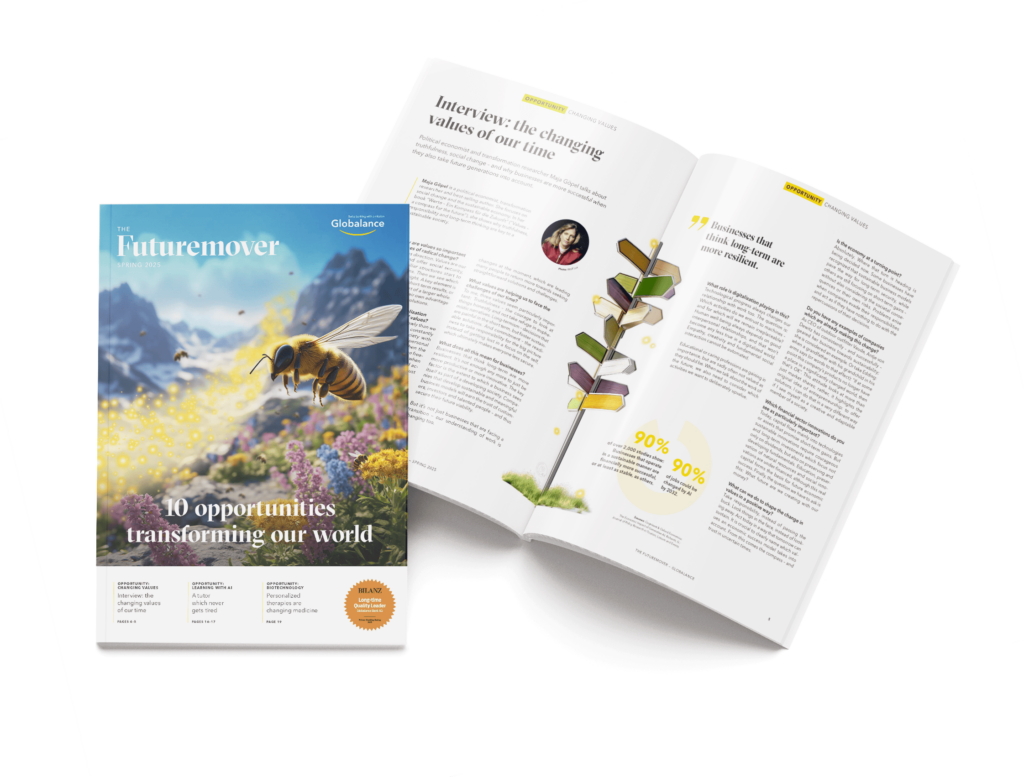
Discover the entire issue
Read more articles from our current issue: ‘10 opportunities
transforming our world’.
Be part of the solution and stay informed with the Futuremover.
Subscribe now and shape the future!
Magazin abonnieren EN
"*" indicates required fields
